News > Blog
Pass the Mic: Using Data to Improve and Adapt Emergency Food Assistance Programs
Published 06/02/2023 by Global Communities

By Paula Rudnicka, Sr. Manager for Public Affairs at Global Communities
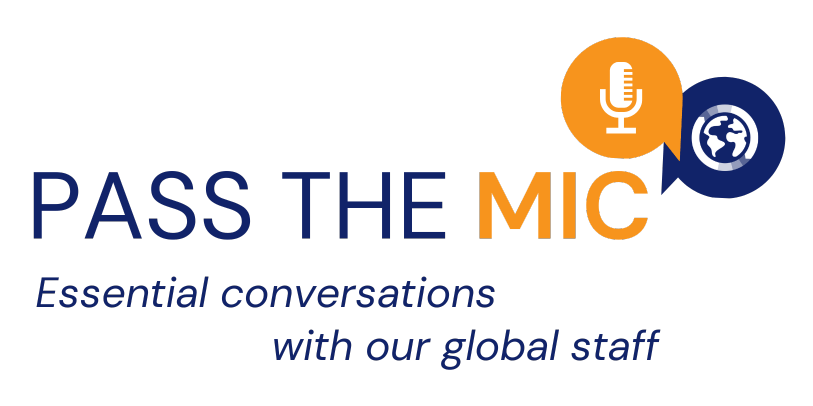
Using reliable, quality data in humanitarian settings is critical to ensuring that life-saving interventions reach affected populations in a timely and equitable manner. While evidence-based decision-making should be a trademark of any emergency response program, data collected in crisis contexts is not always translated into action. Many humanitarian agencies struggle with striking a balance between a desire to be thorough and the need to be agile and end up conducting costly assessments that become obsolete before the results can be used to plan and adapt. Others collect the right information at the right time, but fall short of utilizing it effectively because of scarce resources, lack of time and silos within their organizational structures. When a disaster strikes or a protracted conflict deprives millions of people of basic survival needs, it may be difficult to stop, think and learn. After all, it is the inherent nature of emergency programs to perform and deliver under the pressures of urgency and uncertainty. Yet a failure to pause and reflect may mean that time and funds are poured into services that do not bring about meaningful change, taking away from real priorities.
Global Communities is not immune to these challenges, but we make concerted efforts to address them as soon as they arise. I recently chatted with Tefera Mekonnen, Senior Monitoring & Evaluation Manager in Global Communities’ Yemen Office, about how simple yet intentional program quality reviews can significantly improve the effectiveness of emergency food assistance programs. The interview was edited for length and clarity.
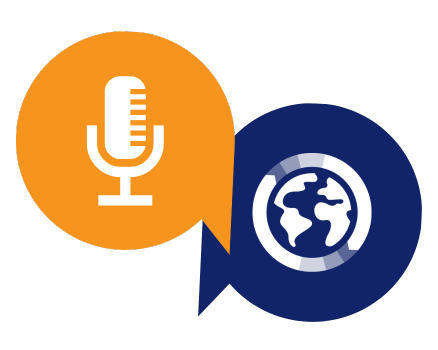
Paula: You are a Senior Monitoring & Evaluation Manager with Global Communities’ Emergency Food and Nutrition Assistance program in Yemen. Could you share a few insights about the program’s objectives and impact? What is, in your opinion, the program’s greatest contribution or achievement thus far?
![]()
Tefera: Humanitarian needs in Yemen continue to grow, driven by the escalating conflict, persistent government revenue shortages and a protracted economic blockade that has fueled the ongoing economic crisis. The Yemeni rial has continued to depreciate in southern areas of Yemen, contributing to further increases in already above-average prices of food and non-food commodities, and reducing household purchasing power. To address some of these ongoing hardships, Global Communities is delivering lifesaving humanitarian assistance to the neediest populations in the country. Our Emergency Food and Nutrition Assistance (EFNA) program addresses urgent food insecurity and nutrition needs of nearly 40,000 individuals in Al Dhale’e, Al Azariq and Qa’atabah districts affected by conflict and instability. The program works with local actors to assist vulnerable groups, including pregnant and lactating women and children under five years old with moderate or severe acute malnutrition. We are observing that most recipients of our aid are recovering from malnutrition. It is very rewarding to work for a program that saves lives by improving food security and the nutritional status of vulnerable populations.
Paula: What types of data does the program typically collect and for what purpose?
![]()
Tefera: The program has collected different data along the project implementation cycle. First, we conducted a needs assessment to inform the program design so that our interventions reflect the context and realities of the Yemeni communities we serve. Second, we selected key outcome indicators and performed a baseline assessment to guide the program’s implementation. Third, we collect process data during each food distribution to make sure it is proceeding according to the agreed protocols and standards. And fourth, we conduct post-distribution monitoring assessments to examine the coverage and relevance of the response and to set up action steps for the next distribution round
Because our program includes a nutrition behavior change component, we also gather data to capture changes in the participants’ knowledge, attitudes, and practices. In addition, we established a community feedback mechanism to receive comments from program participants. Our midterm evaluation assessed the continued relevance of the intervention and the progress made toward achieving its planned objectives. Finally, our endline assessment will allow us to learn from our experiences, improve our practices and evaluate the intended and unintended impacts of the project compared to the baseline values.
We collect all this data to track progress in an accurate and timely manner, to promote evidence-based decision-making, to enhance learning within and outside of the project, and to maintain accountability to project participants and other stakeholders, including donors.
Paula: What challenges arise in collecting and utilizing data in humanitarian assistance programs like yours?
![]()
Tefera: : As you know, humanitarian programs have short implementation periods. Having enough time to collect all the required data is one of the key challenges. Assessments also require a lot of effort and resources. The main goal of data collection and analysis is informed decision-making, but sometimes we observe that the data is not used efficiently. Another challenge is limited staff capacity to make assessment reports actionable and to translate them into concrete strategies.
Paula: You recently spoke at the event How to Promote Learning through Data Usage in Emergency and Humanitarian Settings organized by HuMEL. You focused your remarks on one specific challenge: communication gaps. Could you elaborate on this point in the context of your program?
![]()
Tefera: Global Communities conducted lots of assessments in Yemen over the years. About four years ago, we realized that our team did not effectively utilize this data for informed decision-making. After many internal discussions, we learned that the way we communicated assessment results to the implementation team was problematic. At that time, we simply shared the reports with the team through email. We did not fully appreciate the fact that our staff have busy schedules and limited time to read the reports thoroughly, especially given the fast pace of emergency response programming. Communicating through email did not encourage active interaction among staff and caused silos between different departments.

Paula: During the event, one participant observed that many people who are responsible for using data (usually project leadership) do not have a monitoring and evaluation background and therefore do not know how to read, interpret, and appreciate the data. What is your perspective on this issue?
![]()
Tefera: In general, making assessment reports actionable requires a significant time investment and sharing them by email is not sufficient. Project leaders at the field level are usually busy implementing the program. As a result, they may not have enough time to read the assessment findings in detail, understand the methodologies, interpret the results, and distill key lessons and recommendations. In such cases, monitoring, evaluation and learning staff have an important role to play in unpacking the key findings and their relevance for the project. They can then facilitate a discussion with the leadership and implementation teams, and jointly come up with an action plan. This joint, informed decision-making can really enhance the quality of programing.
Paula: What approaches have you instituted to address these challenges and improve data utilization in your program?
![]()
Tefera: To address these communication challenges, the EFNA program instituted regular program quality review meetings. During these reflection-style meetings, the monitoring and evaluation specialists present assessment results to the broader team, including team leads and program managers. We then discuss the efficient use of data for decision-making and develop joint action plans.
The purpose of these meetings is to promote continuous cross-learning and shared, informed decision-making. The meetings take place quarterly or immediately after key assessments. The results are very promising. We have observed improved efficiency and effectiveness in the program implementation and greater collaboration among departments. Program quality review is a simple solution but helps achieve big results.
Paula: Could you provide an example of how successful data utilization has led to improvements in the delivery of food assistance in your program?
![]()
Tefera: Global Communities used to implement a value voucher model for the food basket program in Yemen. This modality was well-received by our program participants, who were very satisfied with its flexibility. Value vouchers allowed the participants to choose pre-approved vendor shops and select preferred commodities from a broad list of eligible food groups and items. The modality seemed to work perfectly until the food prices significantly increased. When this happened, the participants could claim fewer commodities from the vendor shops since the value of the vouchers did not change.
We defined We then heard that the participants preferred to receive in-kind food items instead of the value vouchers due to inflation. We therefore decided to include questions about community preferences about the food basket modalities in the post-distribution monitoring assessment. The findings indicated that 84% of the respondents preferred direct food assistance to value vouchers. We shared these results with the implementation team during the program quality review meeting and agreed to change the modalities. The current project implements the direct food basket distribution modality based on the community preference.
Paula: I am sure these changes required a cultural shift within the program. Staff need time to shift their attitudes and internalize new processes. What recommendations would you give to others who would like to implement similar approaches?
![]()
Tefera: I remember that when we started the program quality review meetings, staff attitudes toward these meetings were not all that positive until they saw their impact and internalized their importance. The key recommendation for others who want to implement a similar approach is to garner buy-in and commitment from management, including the country directors and chiefs of party, as relevant. The project leadership should believe in the process, be a part of the process and take responsibility for implementing the action plans developed during the program quality review meetings. It is very normal that, at the beginning, staff may develop negative attitudes since these meetings bring up not only project successes but also failures and missed opportunities. They are, however, very important, because they help us learn from these shortcomings and take remedial actions. Staff attitudes will change once they clearly understand the ultimate purpose and benefits of the review meetings, and once these meetings become a part of the organizational culture. It is also good to organize such meetings immediately after major assessments, such as baselines or evaluations, when everyone has fresh memories about the findings. Finally, it is important to avoid combining program quality review meetings with other meetings. They should be held with a very focused agenda, i.e., discussion of key findings from data collection and analysis and joint action planning.
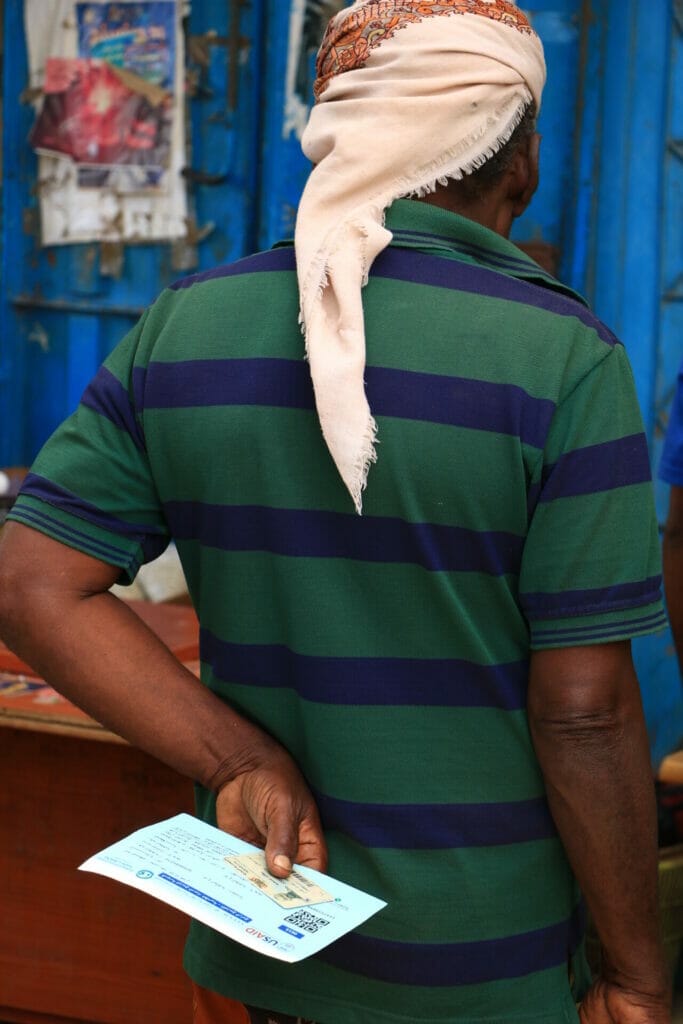
Paula: Do you have any final thoughts or ideas you would like to share?
![]()
Tefera: The ultimate purpose of monitoring, evaluation and learning is measuring and improving program effectiveness. Even in emergency settings we need to invest time in data collection and analysis to determine if we are achieving intended objectives. This helps us identify areas for improvement, choose best practices to replicate, adapt programming when needed, make informed decisions, and improve accountability to participants, donors and the public at large. To achieve this ultimate purpose, we need to have the capacity to collect, analyze, interpret and use data in the most effective and efficient way. So, I suggest that the teams at the field level build staff capacity and put systems in place for effective data utilization since collecting rigorous data requires resources and energy.
Paula: Thank you for your time! How can our readers learn more about your work?
![]()
Tefera: To learn more about Global Communities’ work in Yemen please visit our website and read our story Challenging Malnutrition When Widespread Hunger Prevails in Yemen. If you have questions about our programs, please email us at [email protected]. I also encourage everyone to watch the recording of my presentation and read the slide deck.
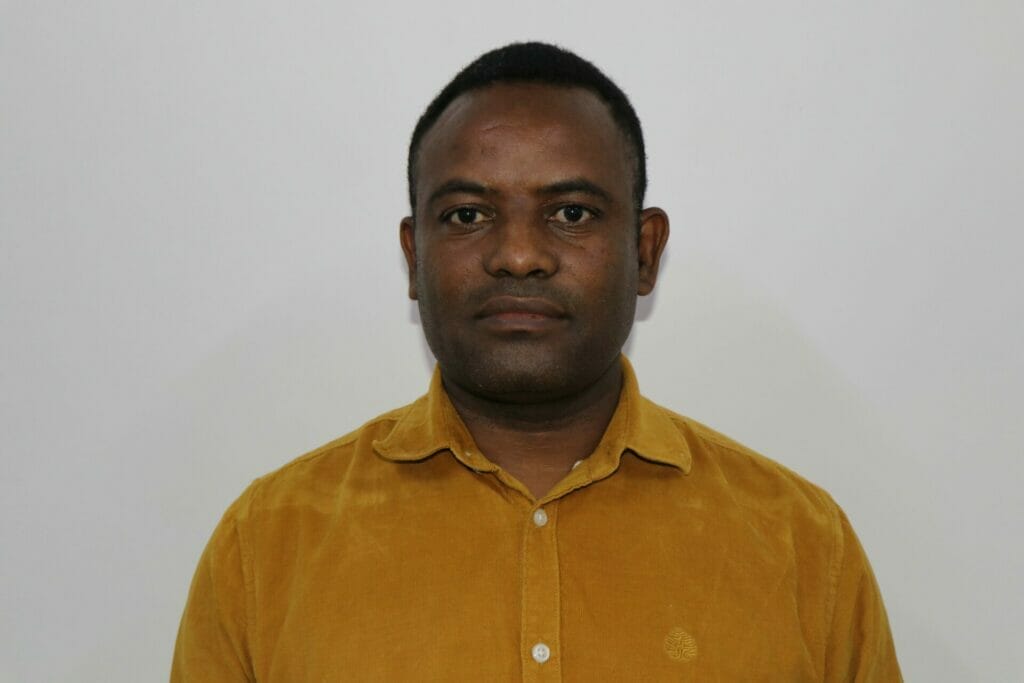
Tefera Mekonnen
Senior Monitoring & Evaluation Manager in Global Communities’ Yemen Office
Tefera Mekonnen is a Senior Monitoring & Evaluation Manager in Global Communities’ Yemen Office. He has extensive experience working in humanitarian contexts in different countries, including Ethiopia, South Sudan, Yemen, Syria, and Nigeria for the past ten years. Before joining Global Communities in January 2019, he worked in different international organizations namely CARE, Oxfam, Mercy Cops, and Action Aid. Tefera holds a B.Sc degree in agricultural extension from Alemeya University and a M.Sc in rural development from the same university. For the past 12 years, Tefera has held various positions, including Country MEAL Advisor, Manager, Program Quality Coordinator, and Senior MEL Manager.
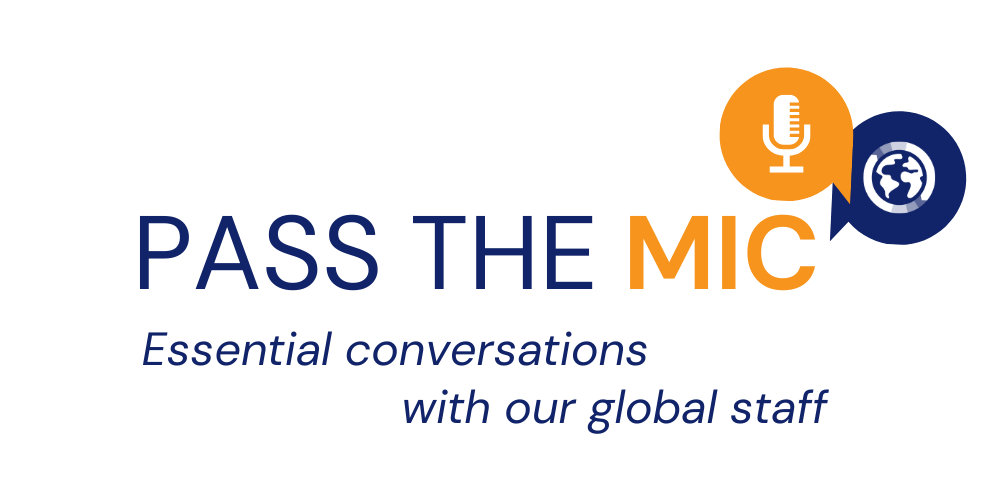
Global Communities is home to a diverse team of professionals with a broad range of expertise and perspectives that help us build the world we envision: one of expanded opportunity, where crises give way to resilience and all people thrive. In our new “Pass the Mic” series, our global staff share innovative ideas and in-depth insights on timely topics spanning the development, humanitarian and peace nexus. Learn how our colleagues are co-creating a more just, prosperous and equitable global community.
